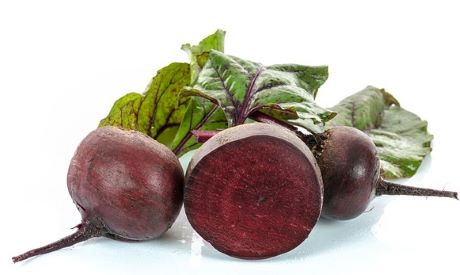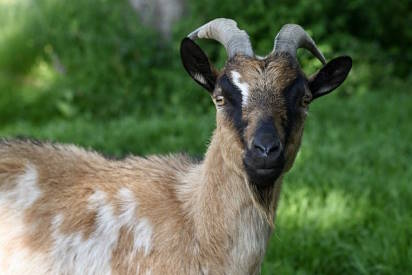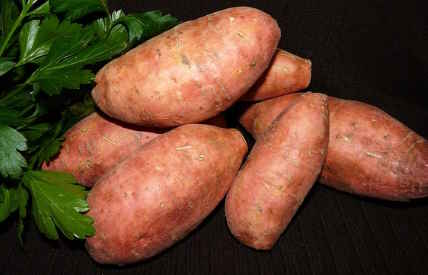Whether you’re a seasoned goat farmer or a newcomer in caprine care, you’ve likely pondered the diverse menu options for these fascinating creatures. One question that frequently crops up is, can goats eat beets? Well, the straightforward answer to that is a resounding yes. Goats can indeed eat beets, and they usually find them pretty delicious!
In my experience of raising goats, incorporating variety into their diet satisfies their inherent curiosity and addresses their nutritional needs. The best approach is to view their dietary plan as a mosaic of different food types. And this is where beets can play a meaningful role with their rich nutritional profile.
However, before you rush off to buy a wagon load of beets, there’s a caveat to consider. As with any other food, the key is in moderation and preparation. This article will guide you through how to incorporate beets into your goats’ diet, their potential benefits, and crucial best practices to remember. So, let’s dive right in!
Understanding Goat Diets
It’s easy to fall into the stereotype of goats eating just about anything they encounter. But, in reality, goats have dietary needs and preferences like any other animal.
Basic Overview of What Goats Eat
Goats are browsers, not grazers like cows. They prefer to nibble on leaves, tender twigs, and fresh green shoots rather than grass. They also enjoy grains and supplemental feeds, providing a well-rounded diet.
The Role of Vegetables in a Goat’s Diet
Vegetables can be integral to a goat’s diet, supplying essential vitamins and minerals. This includes beets and many other root vegetables.
Common Myths about Goat Diets
Contrary to popular belief, goats are selective eaters. They won’t eat dirty food or food that has been on the ground, and they certainly won’t eat tin cans, contrary to the cartoon stereotype!
[GoatAffiliate]
Nutritional Breakdown of Beets
Beets are a power-packed vegetable that can be an excellent addition to a goat’s diet. Let’s see what makes them so unique.
Essential Nutrients Found in Beets
Beets are rich in fiber, vitamin C, folate, and potassium. They also provide some iron, magnesium, and other nutrients beneficial for goats.
Comparison of Beet Nutrients with Common Goat Food
Beets may provide different nutritional components compared to traditional goat foods like alfalfa or grains. While grains are high in energy, and alfalfa offers protein, beets add a unique set of vitamins and minerals to the diet.
Benefits of Beets for Goats
When it comes to goat feed, variety can often enhance nutritional intake, and this is where beets shine. Packed with essential nutrients, they can bring a wealth of benefits to your goats. Let’s dig deeper into what these beet benefits are.
Boosting Digestive Health
First, beets are high in dietary fiber, which aids in smooth digestion for goats. Fiber helps maintain a healthy rumen environment and promotes regular bowel movements, leading to overall better health for your goats. The fiber content in beets can also help make your goats feel full and satisfied, aiding in maintaining a healthy weight.
Enhancing Nutritional Intake
Beets are a powerhouse of several nutrients, including vitamin C, folate, and potassium. They also offer a good dose of magnesium, iron, and other minerals. This combination of nutrients can aid in many biological processes, supporting immune function, bone development, and vitality in goats. So, every bite of beet your goats chew brings them various beneficial nutrients.
Potential Influence on Milk Production
Some anecdotal evidence suggests that beets’ nutrient-rich profile positively influences dairy goats’ milk yield. Even though more scientific validation is required for this claim, it won’t hurt to try and see if your dairy goats respond positively to a diet supplemented with beets.
Encouraging Hydration
Beets have a high water content which can contribute to the hydration of your goats. Staying hydrated is essential for the well-being of goats, especially during warmer months or in particularly arid environments. Providing beets can be a creative way to supplement their water intake.
Natural Deworming Agent
Although more research is needed in this area, some goat owners believe that beets’ natural properties might help control internal parasites. This could be an added advantage of incorporating beets into your goats’ diet.
Potential Risks of Feeding Beets to Goats
Like any other dietary item, moderation is key when feeding beets to your goats.
Overfeeding and Its Potential Risks
Too much of any one thing, including beets, can throw off a goat’s balanced diet. Overfeeding beets could lead to digestive issues.
Specific Concerns with Beets
The high sugar content in beets could be a concern if consumed in large quantities, leading to obesity or tooth decay.
Signs of Dietary Issues in Goats
If you notice your goats having issues like weight gain, tooth decay, or lethargy, it might be time to reevaluate their diet, including their beet intake.
Best Practices for Feeding Beets to Goats
Feeding beets to goats is more than just tossing a bunch of beets into their enclosure and calling it a day. It involves a deeper understanding of their dietary needs and habits. Let’s walk through some best practices to ensure your goats reap the maximum benefits from beets while avoiding potential issues.
Gradual Introduction into the Diet
As with any new food, gradually introducing beets into your goat’s diet is vital. This will give their digestive systems time to adapt and prevent sudden changes that could upset their stomachs. Start with small portions and monitor their reactions before increasing the quantity.
Preparing Beets for Consumption
While goats have strong teeth that can handle raw beets, chopping them into smaller, more manageable pieces can make it easier for them to eat. Wash the beets thoroughly to remove dirt or pesticides before feeding them to your goats.
Striking the Right Balance: Portion and Frequency
Remember, while beets have numerous benefits, they should only form a part of a well-rounded goat diet, not the entirety of it. Beets should be considered a supplement, not a staple, in your goats’ meals. As a rule of thumb, treats (which include fruits and vegetables like beets) should not make up more than 10% of a goat’s diet.
Watch for Individual Preferences and Reactions
Like humans, goats have individual likes, dislikes, and dietary needs. Some may adore beets, while others may not care for them as much. Similarly, some goats may digest beets better than others. Always observe your goats after introducing new food into their diet and adjust accordingly.
Avoid Overripe or Moldy Beets
Make sure the beets you feed your goats are fresh. Overripe or moldy beets can harbor harmful bacteria, which could cause health issues. Discard any beets that have started to spoil or that your goats have left uneaten for a long period.
Hydration is Important
Feeding beets, especially in larger quantities, can be a diuretic. Always ensure that your goats have access to plenty of fresh, clean water, especially when feeding them beets or other high sugar fruits or vegetables.
What Other Vegetables Can Goats Eat Apart from Beets?
While beets are a healthy addition to a goat’s diet, variety is the key to nutritional success. There are plenty of other vegetables that goats can safely enjoy. Let’s look at some of these: carrots, potatoes, sweet potatoes, turnips, and onions.
Carrots
Carrots are a fantastic treat for goats! Packed with beta-carotene (a precursor to vitamin A) and fiber, they are healthy and usually a big hit with our caprine friends. You can feed them raw, chopped, or grated and watch your goats munch away happily.
Read More: Can Goats Eat Carrots? 5 Fantastic Benefits
Potatoes
While potatoes aren’t harmful to goats, they are high in starch, which can be difficult for goats to digest in large quantities. It’s best to feed potatoes sparingly and never feed them raw as they contain solanine, a naturally occurring toxic chemical. If you treat your goats with potatoes, ensure they are cooked and cut into small pieces.
Read More: Can Goats Eat Potatoes? 5 Excellent Benefits
Sweet Potatoes
Sweet potatoes are a safer bet than regular potatoes. They can be fed to goats in moderation and offer valuable nutrients like vitamin A. Just like regular potatoes, they should be cooked before feeding to neutralize potentially harmful compounds. Be sure to avoid feeding sweet potato vines, as they can be toxic to goats.
Read More: Can Goats Eat Sweet Potatoes? Simple Answer & Feeding Tips
Turnips
Turnips, like beets, can be an excellent treat for your goats. They are rich in vitamins and minerals, and their high water content can also help keep your goats hydrated. Both the turnip root and greens can be fed to goats, but make sure to introduce them gradually to avoid digestive upset.
Read More: Can Goats Eat Turnips? 4 Great Health Benefits
Onions
Onions are where we need to tread carefully. While goats might enjoy their taste, onions contain a compound called thiosulphate, which can cause hemolytic anemia in goats if consumed in large quantities. It’s best to avoid feeding onions to goats, even though small amounts likely won’t cause any problems. Always err on the side of caution when it comes to your goats’ health.
Read More: Can Goats Eat Onions? Unveiling The Surprising Truth
Can goats eat beets – final thoughts
We’ve navigated through the world of goats and beets quite thoroughly! The journey has shown us that beets have a place in the diet of our caprine companions. They offer a nutrient-rich meal boost, promoting good health and enhancing milk production. Plus, from what we know about goats’ inquisitive palates, they’ll likely find these colorful veggies an exciting addition to their regular chow.
However, let’s not forget our mantra: moderation is key. Beets should be a supplemental delight, not the star of the show. Introduce them gradually, keep portions under control, and always offer fresh, clean beets to keep your goats clambering for more.
Related Articles:






